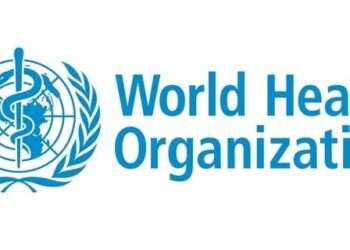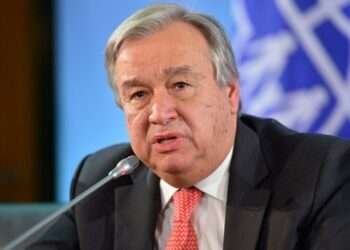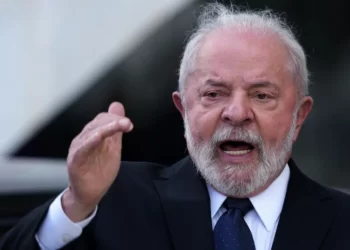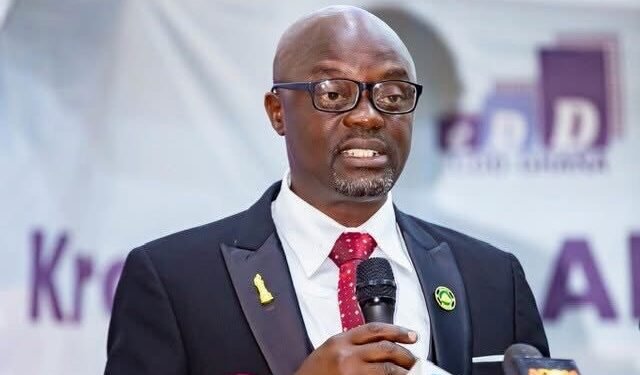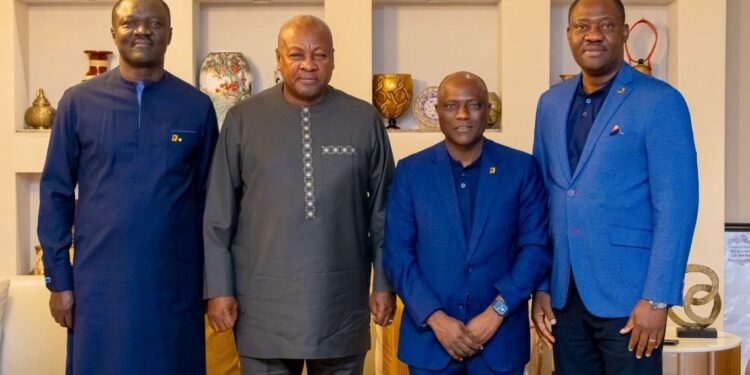The United Nations (UN) Secretary-General, Antonio Guterres has painted a grim picture of a divided and polarized world and urged solidarity among nations.
According to the UN Chief, the world has never been more threatened or more divided as it is now. As such, he urged all 193 member states to “wake up” and realize that solidarity is the only way out of disaster.
“We are on the edge of an abyss. We face the greatest cascade of crises in our lifetimes. The COVID-19 pandemic has supersized inequalities, the climate crisis is pummeling the planet, upheavals in Afghanistan, Ethiopia and Yemen have thwarted peace and a surge of malformation is polarizing people everywhere.
“Human rights are under fire. Science is under assault. And economic lifelines for the most vulnerable are coming too little and too late —if they come at all”.
Antonio Guterres
Antonio Guterres stated this on Tuesday as he kicked off the 76th General Assembly session. This is the first time the assembly is meeting together since last year’s suspended in-person session due to the coronavirus pandemic.
Vaccine shortages
Meanwhile, the UN Chief expressed worry about vaccine shortages in most parts of the world. He pointed out that while vaccines have been developed in record time, they are missing for far too many people.
“A surplus in some countries. Empty shelves in others. This is a moral indictment of the state of our world. It is an obscenity. We passed the science test. But we are getting an F in Ethics.”
Antonio Guterres
According to him, more than 90 percent of Africans are still waiting for their first dose. As such, he called for a global vaccination plan to ensure that vaccines reach 70 percent of the world’s population in the first half of 2022.
Global warming
Also, the Secretary-General sounded an alarm on global warming as well. He cited a recent report of the Intergovernmental Panel on Climate Change and the vivid warning signs sweeping every continent. He made reference to the deadly remnants of Hurricane Ida that ravaged New York earlier in September.
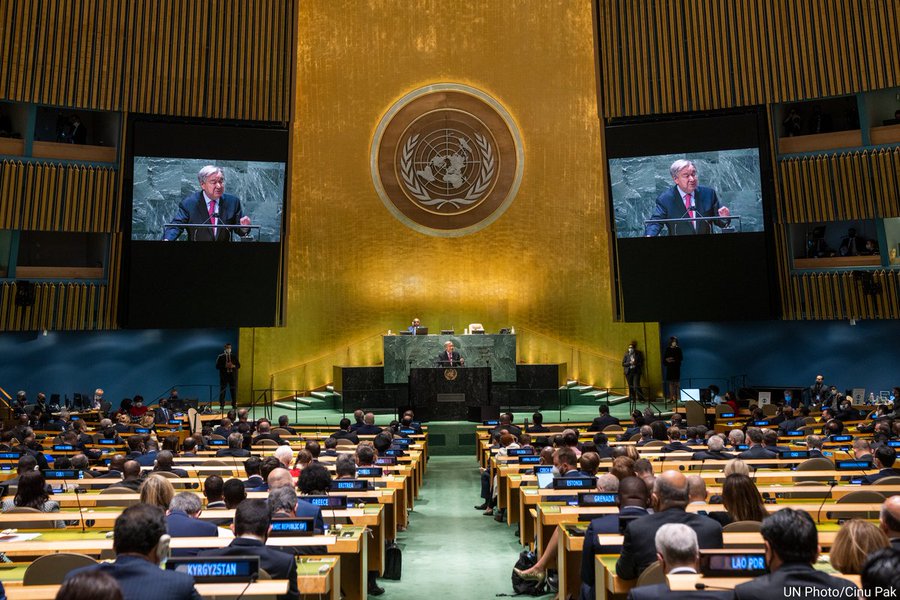
Meanwhile, Guterres warned that the window to keep alive the 1.5-degree-Celcius (2.7-degree F) goal of the Paris Climate Agreement is quickly closing. To this end, he urged the world to commit to a 45 percent cut in emissions by 2030.
Citing a recent UN report that predicted emissions to go up by 16 percent by 2030, he said that would condemn the world to a “hellscape of temperature rises”.
“We are weeks away from the UN Climate Conference in Glasgow, but seemingly light years away from reaching our targets”.
Antonio Guterres
The UN chief further averred that developing countries must finally see the promised $100bn a year for climate action. He stated that taxing carbon and pollution instead of people’s income would encourage the switch to sustainable green jobs. Also, he noted that ending subsidies to fossil fuels would allocate funds to invest back in education, renewable energy and social protections.
“The people we serve and represent may lose faith not only in their governments and institutions — but in the values that have animated the work of the United Nations for over 75 years”.
Antonio Guterres
Country-specific concerns
Turning to country-specific concerns, the secretary-general stressed the need to defend human rights, especially of women and girls in Afghanistan. Also, he noted that there is the need to create the conditions for the start of an Ethiopian-led political dialogue in Ethiopia. Additionally, he touched on the need to promote human rights and democracy in Myanmar; overcome stalemates in Yemen, Libya and Syria and show solidarity to the people of Haiti.
On Israel and Palestine, he urged leaders to resume a meaningful dialogue and recognize the two-state solution as the only pathway to a just and comprehensive peace.
Furthermore, he warned against tensions among superpowers — the United States and China.
“It will be impossible to address dramatic economic and development challenges while the world’s two largest economies are at odds with each other. The world is creeping towards two different sets of economic, trade, financial, and technology rules, two divergent approaches in the development of artificial intelligence — and ultimately two different military and geo-political strategies”.
Antonio Guterres
This would be far less predictable than the Cold War, he warned, calling for a boost in cooperation, dialogue and understanding.
Guterres also said “countries shouldn’t have to choose between servicing debt and serving people”. As such, Guterres called on countries to reform their tax systems and end tax evasion, money laundering and illicit financial flows.




